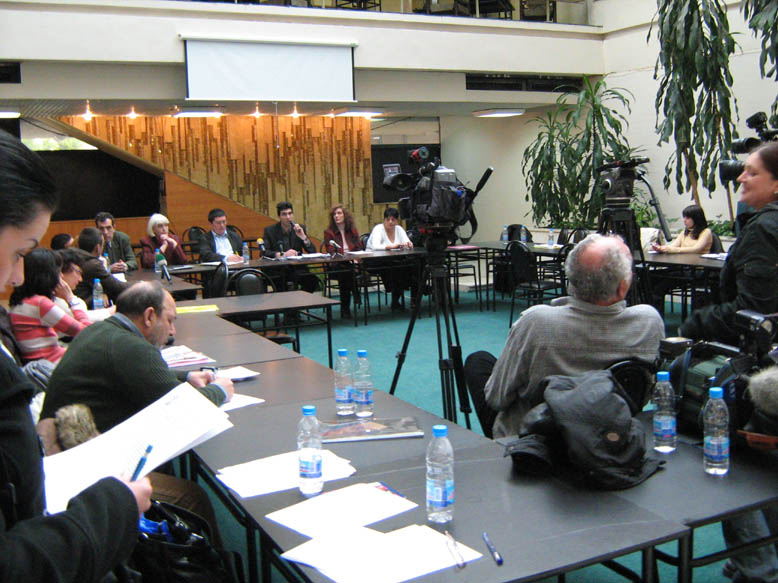31.03.2009Discussion about the new Public Education Act
 The draft Public Education Act proposed by Ministry of Education does not respect in any way and does not support the efforts for educational integration of Roma children. In addition, some of its statements will disturb additionally the educational integration and will left thousands of Roma children out of school.
The draft Public Education Act proposed by Ministry of Education does not respect in any way and does not support the efforts for educational integration of Roma children. In addition, some of its statements will disturb additionally the educational integration and will left thousands of Roma children out of school.
These were some of the conclusions from the Round table “The educational integration and the new Public Education Act” that took part in Sofia on March 30. It was organized by Center for Interethnic Dialogue and Tolerance “Amalipe” with the support of Open Society Institute – Sofia. More than 50 principals of schools that integrate Roma children as well as representatives of the National Association of Municipalities took part in the discussion. Deyan Kolev and Boyan Zahariev moderated it.
The draft Public Education Act does not contain any article or paragraph connected with the educational integration of Roma children. This is a serious retreat from the Strategy for educational integration approved by Ministry of Education in 2004 and in practice abolishes it – explained Deyan Kolev. This is also a retreat from international engagements of Bulgaria, such as Decade of Roma Inclusion, Joint Inclusion Memorandum and Human Resources Development Operational Program. That is why concrete texts that support the educational integration should be proposed to the Parliamentary Commission on Education in order to be included in the Law that is expected to be approved soon.
Rumiana Iordanova, Deputy-Chair of the Commission of Education of the National Association of Municipalities classified the draft Law as “a kilogram chaotic misunderstandings”. She overdrew that if the draft becomes a Law in this way it will create serious problems for the entire educational system in Bulgaria.
During the discussion school principals outlined several topics. The removal of 8th grade from primary to secondary education will close hundreds of schools in the rural areas (many of them attended by Roma kids) and will provoke difficulties before the real access to education. This measure will deteriorate additionally the quality of education in the primary schools. All participants decided to propose primary education to remain 8 years (instead of 7 as it is in the draft Law).
Introducing full-time schooling in all primary schools in which parents decide to do it was the other common suggestion. The financing for full time schooling (i.e. schooling not only during the ordinary lessons but also during after-class and afternoon activities) should come from the state budget. This will provide Roma children (and majority children as well) with more qualified education and will prevent the drop-out rate.
Introducing intercultural education should be supported through the Public Education Act and this should be one of the top-priorities for the educational integration – agreed the participants. Intercultural education will create favorable environment for accepting Roma children in ethnically mixed schools and will form tolerance among all children. The participants proposed concrete texts that will allow introducing intercultural education within the obligatory subjects, as elective subjects and as after-class activities.
All suggestions were summarized in the end of the discussion. They will be put forward to the Parliamentary Commission on Education with request to be incorporated in the Law. Many participants expressed opinion that it would be better if the Public Education Act is not voted before the elections (July 2009): the time is too short and there will not be enough time to repair the misunderstandings in the present draft. It will be better if such an important Law is voted at the beginning of the new Parliament – declare most of the participants.








